![非线性光学(第3版) [Nonlinear Optics Third Edition]](https://pic.windowsfront.com/10516011/378477e9-a610-411a-9226-4e0db6668148.jpg)

具体描述
内容简介
It has been a great pleasure for me to have prepared the latest edition of my book on nonlinear optics. My intrigue in the subject matter of this book is as strong as it was when the first edition was published in 1992.内页插图
目录
Preface to the Third EditionPreface to the Second Edition
Preface to the First Edition
1. The Nonlinear Optical Susceptibility
1.1. Introduction to Nonlinear Optics
1.2. Descriptions of Nonlinear Optical Processes
1.3. Formal Definition of the Nonlinear Susceptibility
1.4. Nonlinear Susceptibility of a Classical Anharmonic Oscillator
1.5. Properties of the Nonlinear Susceptibility
1.6. Time-Domain Description of Optical Nonlinearities
1.7. Kramers-Kronig Relations in Linear and Nonlinear Optics
Problems
References
2. Wave-Equation Description of Nonlinear Optical Interactions
2.1. The Wave Equation for Nonlinear Optical Media
2.2. The Coupled-Wave Equations for Sum-Frequency Generation
2.3. Phase Matching
2.4. Quasi-Phase-Matching
2.5. The Manley-Rowe Relations
2.6. Sum-Frequency Generation
2.7. Second-Harmonic Generation
2.8. Difference-Frequency Generation and Parametric Amplification
2.9. Optical Parametric Oscillators
2.10. Nonlinear Optical Interactions with Focused Gaussian Beams
2.11. Nonlinear Optics at an Interface
Problems
References
3. Quantum-Mechanical Theory of the Nonlinear Optical Susceptibility
3.1. Introduction
3.2. SchriSdinger Calculation of Nonlinear Optical Susceptibility
3.3. Density Matrix Formulation of Quantum Mechanics
3.4. Perturbation Solution of the Density Matrix Equation of Motion
3.5. Density Matrix Calculation of the Linear Susceptibility
3.6. Density Matrix Calculation of the Second-Order Susceptibility
3.7. Density Matrix Calculation of the Third-Order Susceptibility
3.8. Electromagnetically Induced Transparency
3.9. Local-Field Corrections to the Nonlinear Optical Susceptibility
Problems
References
4. The Intensity-Dependent Refractive Index
4.1. Descriptions of the Intensity-Dependent Refractive Index
4.2. Tensor Nature of the Third-Order Susceptibility
4.3. Nonresonant Electronic Nonlinearities
4.4. Nonlinearities Due to Molecular Orientation
4.5. Thermal Nonlinear Optical Effects
4.6. Semiconductor Nonlinearities
4.7. Concluding Remarks References
5. Molecular Origin of the Nonlinear Optical Response
5.1. Nonlinear Susceptibilities Calculated Using Time-Independent Perturbation Theory
5.2. Semiempirical Models of the Nonlinear Optical Susceptibility
Model of Boling, Glass, and Owyoung
5.3. Nonlinear Optical Properties of Conjugated Polymers
5.4. Bond-Charge Model of Nonlinear Optical Properties
5.5. Nonlinear Optics of Chiral Media
5.6. Nonlinear Optics of Liquid Crystals
Problems
References
6. Nonlinear Optics in the Two-Level Approximation
6.1. Introduction
6.2. Density Matrix Equations of Motion for a Two-Level Atom
6.3. Steady-State Response of a Two-Level Atom to a Monochromatic Field
6.4. Optical Bloch Equations
6.5. Rabi Oscillations and Dressed Atomic States
6.6. Optical Wave Mixing in Two-Level Systems
Problems
References
7. Processes Resulting from the Intensity-Dependent Refractive Index
7.1. Self-Focusing of Light and Other Self-Action Effects
7.2. Optical Phase Conjugation
7.3. Optical Bistability and Optical Switching
7.4. Two-Beam Coupling
7.5. Pulse Propagation and Temporal Solitons
Problems
References
8. Spontaneous Light Scattering and Acoustooptics
8.1. Features of Spontaneous Light Scattering
8.2. Microscopic Theory of Light Scattering
8.3. Thermodynamic Theory of Scalar Light Scattering
8.4. Acoustooptics
Problems
References
9. Stimulated Brillouin and Stimulated Rayleigh Scattering
9.1. Stimulated Scattering Processes
9.2. Electrostriction
9.3. Stimulated Brillouin Scattering (Induced by Electrostriction)
9.4. Phase Conjugation by Stimulated Brillouin Scattering
9.5. Stimulated Brillouin Scattering in Gases
9.6. Stimulated Brillouin and Stimulated Rayleigh Scattering
Problems
References
10. Stimulated Raman Scattering and Stimulated Rayleigh-Wing Scattering
10.1. The Spontaneous Raman Effect
10.2. Spontaneous versus Stimulated Raman Scattering
10.3. Stimulated Raman Scattering Described by the Nonlinear Polarization
10.4. Stokes-Anti-Stokes Coupling in Stimulated Raman Scattering
10.5. Coherent Anti-Stokes Raman Scattering
10.6. Stimulated Rayleigh-Wing Scattering
Problems
References
11. The Electrooptic and Photorefractive Effects
11.1. Introduction to the Electrooptic Effect
11.2. Linear Electrooptic Effect
11.3. Electrooptic Modulators
11.4. Introduction to the Photorefractive Effect
11.5. Photorefractive Equations of Kuldatarev et al.
11.6. Two-Beam Coupling in Photorefractive Materials
11.7. Four-Wave Mixing in Photorefractive Materials
Problems
References
12. Optically Induced Damage and Multiphoton Absorption
12.1. Introduction to Optical Damage
12.2. Avalanche-Breakdown Model
12.3. Influence of Laser Pulse Duration
12.4. Direct Photoionization
12.5. Multiphoton Absorption and Multiphoton Ionization
Problems
References
13. Ultrafast and Intense-Field Nonlinear Optics
13.1. Introduction
13.2. Ultrashort Pulse Propagation Equation
13.3. Interpretation of the Ultrashort-Pulse Propagation Equation
13.4. Intense-Field Nonlinear Optics
13.5. Motion of a Free Electron in a Laser Field
13.6. High-Harmonic Generation
13.7. Nonlinear Optics of Plasmas and Relativistic Nonlinear Optics
13.8. Nonlinear Quantum Electrodynamics
Problem
References
Appendices
A. The SI System of Units
Further reading
B. The Gaussian System of Units
Further reading
C. Systems of Units in Nonlinear Optics
D. Relationship between Intensity and Field Strength
E. Physical Constants
Index
前言/序言
It has been a great pleasure for me to have prepared the latest edition of my book on nonlinear optics. My intrigue in the subject matter of this book is as strong as it was when the first edition was published in 1992.The principal changes present in the third edition are as follows: (1) The book has been entirely rewritten using the SI system of units. I personally prefer the elegance of the gaussian system of units, which was used in the first two editions, but I realize that most readers would prefer the SI system, and the change was made for this reason. (2) In addition, a large number of minor changes have been made throughout the text to clarify the intended meaning and to make the arguments easier to follow. I am indebted to the countless comments received from students and colleagues both in Rochester and from around the world that have allowed me to improve the writing in this manner. (3) Moreover, several sections that treat entirely new material have beenadded. Applications of harmonic generation, including applications within the fields of microscopy and biophotonics, are treated in Subsection 2.7.1. Electromagnetically induced transparency is treated in Section 3.8. Some brief but crucial comments regarding limitations to the maximum size of the intensity induced refractive-index change are made in Section 4.7. The use of nonlinear optical methods for inducing unusual values of the group velocity of light are discussed briefly in Section 3.8 and in Subsection 6.6.2. Spectroscopy based on coherent anti-Stokes Raman scattering (CARS) is discussed in Section 10.5. In addition, the appendix has been expanded to include brief descriptions of both the SI and gaussian systems of units and procedures for conversion between them.
用户评价
说实话,我之前对非线性光学领域了解不多,只是依稀知道它跟激光和光波的相互作用有关。拿到这本书之后,我本来只是抱着学习一下的心态,没想到它给我带来的惊喜是如此之大。这本书的知识体系构建得非常完整,从最基础的光学原理开始,循序渐进地引向非线性现象的讨论。我尤其喜欢的是,作者在介绍每一个新概念时,都会先回顾相关的基础知识,这对于我这种“跨界”读者来说,简直是救星。书中对于实验的描述也十分详尽,仿佛我亲身站在实验室里,看着那些精密的仪器是如何运作,如何捕捉到那些肉眼难以察觉的微弱信号。我还在思考,书中提到的那些实验方法,是否也能应用到我自己的研究领域呢?这种跨学科的启发性,是我在这本书中最意外的收获。我感觉这本书不仅仅是一本教科书,更像是一本启发思想的指南,它让我对光学世界的认识,从二维变成了三维,甚至向更高维度延展。
评分这本书到手的时候,我的内心其实是有些忐忑的。毕竟,“非线性光学”这个词听起来就充满了挑战性,我担心这本书的难度会超乎我的想象,让我望而却步。但是,当我翻开第一页,读到开篇的引言时,我的担忧便烟消云散了。作者用一种非常平易近人的语言,为我们勾勒出了非线性光学研究的宏大图景,解释了这项研究在现代科技中的重要地位,比如激光技术的进步、光通信的突破等等。这种“由宏观到微观”的切入方式,一下子就吸引了我。接着,书中的概念解释也十分到位,每一个公式的推导都详详细细,逻辑清晰,仿佛有一个循循善诱的老师在身边一一讲解。即使是一些初学者可能遇到的难点,作者也预见到了,并在行文中给予了提示和解释。我尤其欣赏的是,书中不仅仅是罗列公式和理论,还穿插了很多实际的应用案例,这让我能更直观地理解这些抽象的物理现象是如何在现实世界中发挥作用的。我感觉这本书就像一座桥梁,连接了理论知识和实际应用,让我能够更好地把握这个学科的精髓。
评分我是一名在校的大学生,目前正在学习光学相关的课程。在老师的推荐下,我入手了这本《非线性光学(第3版)》。拿到书的时候,我最直观的感受就是它的“有料”。这不仅仅是指纸张的厚实和印刷的精美,更重要的是,我能在书页的字里行间感受到作者倾注的心血和智慧。这本书的内容对我来说,既有挑战性,又充满吸引力。作者在讲解过程中,会引用大量的参考文献,这对于我想要进一步深入了解某个概念时,提供了非常宝贵的线索。我特别喜欢书中对一些经典实验的介绍,它们不仅展示了理论的验证过程,也让我看到了光学研究的历史演变。虽然有些概念我还需要反复琢磨才能完全理解,但每一次的理解都让我感到一种突破的喜悦。我甚至开始考虑,未来毕业后是否要继续攻读非线性光学相关的研究生,这本书无疑为我打开了一扇新的大门,让我看到了更广阔的研究前景。
评分拿到这本书的那一刻,我就被它厚重的身躯所震撼,这绝不是一本能轻易读完的书,需要投入大量的时间和精力。封面设计简洁而有力,没有过多的装饰,却传递出一种深邃的专业感。打开书页,印刷质量毋庸置疑,字迹清晰,图片锐利,每一处细节都彰显着出版方的用心。我迫不及待地翻阅了目录,发现内容涵盖了非线性光学极其广泛的领域,从基础的克尔效应、二次谐波产生,到更高级的参量放大、光孤子等等,可以说应有尽有。我特别关注了其中关于“光伏效应”和“光学信息处理”的章节,这两部分内容与我的研究方向息息相关,我期待能从中找到新的灵感和解决方案。这本书的语言风格严谨而准确,用词考究,体现了作者深厚的学术功底。虽然我还没来得及深入阅读,但仅从目录和开篇章节的浏览,我就能感受到这本书的价值非凡,它必将成为我学术研究道路上的重要指引。
评分这本书的包装真是让人眼前一亮,硬壳封面,纸质也相当厚实,拿在手里就有一种沉甸甸的质感,感觉像是可以传承给下一代的经典读物。封面的设计更是巧妙,采用了抽象的几何图形和渐变的色彩,隐约能感受到其中蕴含的复杂物理原理,同时又不失现代感。打开书页,油墨的香气扑鼻而来,一股浓郁的书卷气瞬间弥漫开来,让人迫不及待地想深入其中一探究竟。排版非常舒服,字体大小适中,行间距也恰到好处,长时间阅读也不会感到疲劳。章节之间的过渡自然流畅,仿佛作者在娓娓道来一个引人入胜的故事。我特别喜欢书中穿插的一些插图和图表,它们以一种非常直观的方式解释了抽象的概念,即使是对非线性光学了解不深的人,也能通过这些图示获得一些初步的认识。我还在想,如果能配上一些3D的立体模型,那就更完美了,不过目前的呈现方式已经足够令人惊艳。我拿到这本书之后,就立刻把它放在了书架最显眼的位置,每次路过都会忍不住多看两眼,期待着能早日翻开它,开始我的学术探索之旅。
评分经典著作 学习非线性光学的必备参考资料
评分非常棒的一本专著
评分堡德的书,国内外评价都不错,值得一看!
评分经典的书,不用多说,包装很好!
评分书很好,物流很好,非常满意
评分经典书 质量也不错 比原版划算多了
评分一般吧
评分专业书籍,不错,适合参考学习。
评分。。。。。。。。。。。。。。
相关图书
本站所有内容均为互联网搜索引擎提供的公开搜索信息,本站不存储任何数据与内容,任何内容与数据均与本站无关,如有需要请联系相关搜索引擎包括但不限于百度,google,bing,sogou 等,本站所有链接都为正版商品购买链接。
© 2026 windowsfront.com All Rights Reserved. 静流书站 版权所有


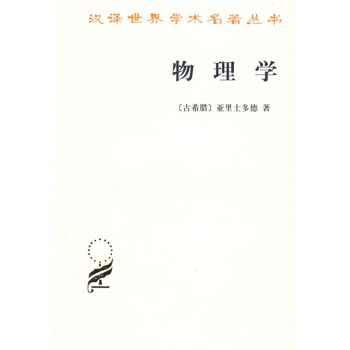
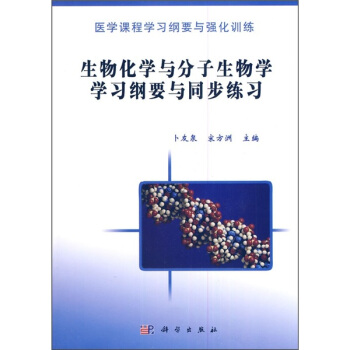
![数据分析与模拟丛书·数量生态学:R语言的应用 [Numerical Ecology with R] pdf epub mobi 电子书 下载](https://pic.windowsfront.com/11472548/563c1aa7N8f1db6b3.jpg)
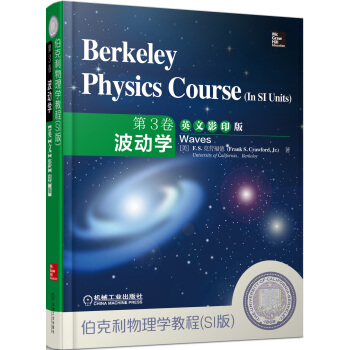
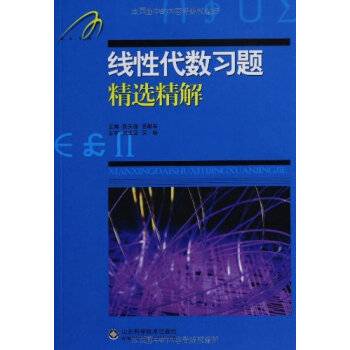
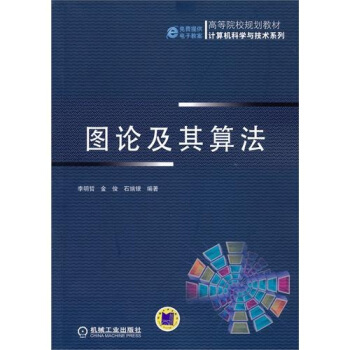
![环境与生态统计:R语言的应用 [Environmental and Ecological Statistics with R] pdf epub mobi 电子书 下载](https://pic.windowsfront.com/10874562/5652a69bN360bd21b.jpg)
![非饱和土力学 [Unsaturated Soil Mechanics] pdf epub mobi 电子书 下载](https://pic.windowsfront.com/11022335/5661350eNa03a2250.jpg)
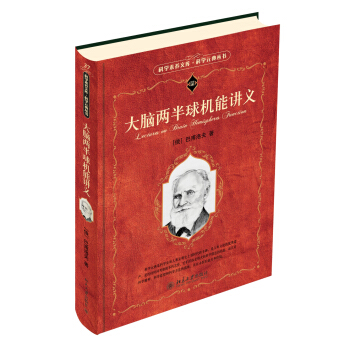
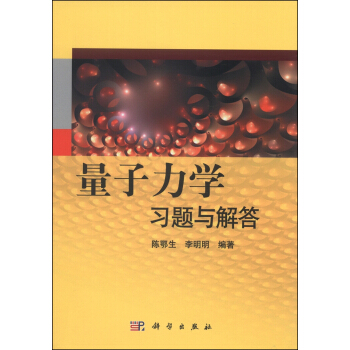


![黎曼几何 [Riemannian Geometry] pdf epub mobi 电子书 下载](https://pic.windowsfront.com/10096470/32167470-3f8c-42cd-8bf0-e7095c75451a.jpg)
![数理统计(第2版)(英文版) [Mathematical Statistics(Second Edition)] pdf epub mobi 电子书 下载](https://pic.windowsfront.com/10104512/bafe228e-66b0-49b2-adea-579a4f367101.jpg)



![蛋白质纯化指南(原书第2版) [Guide to Protein Purification] pdf epub mobi 电子书 下载](https://pic.windowsfront.com/11304575/5398fdb9N6268ec4e.jpg)
